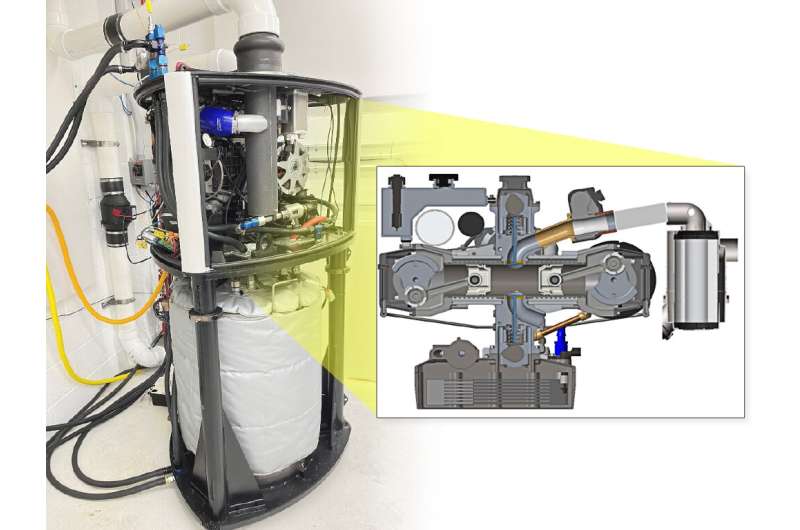
Oak Ridge National Laboratory researchers, in collaboration with Enginuity Power Systems, have demonstrated that a micro-combined heat and power prototype (mCHP) with a piston engine can achieve an overall energy efficiency greater than 93%.
Designed to replace a backup generator or traditional gas hot water heater, the mCHP switches between natural gas, hydrogen and biogas, and combines battery storage and solar energy.
Researchers evaluated an mCHP that uses a four-stroke opposed piston engine. It’s environmentally friendly and cost-effective because heat that would otherwise be wasted is captured and reused to provide thermal energy at a small scale for a building in a single process. This allows for a higher efficiency compared to conventional single-functional equipment.
“Results exceeded expectations,” said ORNL’s Zhiming Gao. “Even without providing heat, in lean burn mode, this mCHP showed more than 35% electrical energy efficiency.”
This innovation could accelerate use in small residential and commercial buildings for remote and underserved communities.
























